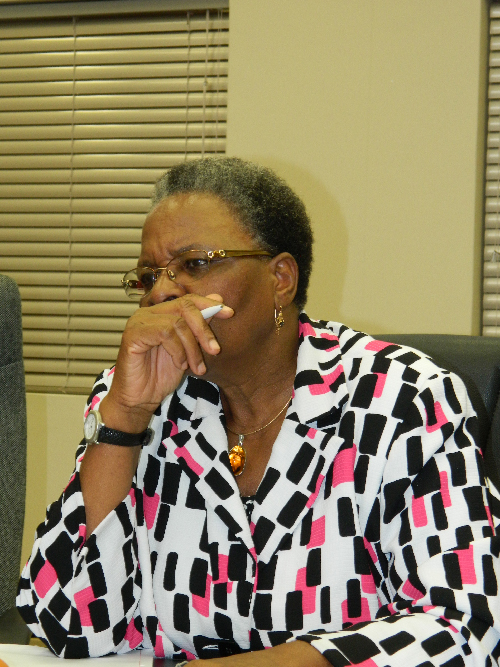
Rich countries must reduce emissions
 A lack of ambition to reduce greenhouse gas emissions is casting a shadow over achievements gained during the recently concluded Conference of Parties (COP 17) meeting in Durban, South Africa, says Netumbo Nandi-Ndaitwah, Minister of Environment and Tourism.
A lack of ambition to reduce greenhouse gas emissions is casting a shadow over achievements gained during the recently concluded Conference of Parties (COP 17) meeting in Durban, South Africa, says Netumbo Nandi-Ndaitwah, Minister of Environment and Tourism.
Speaking at a press conference this week, Nandi-Ndaitwah said as long as the emission of greenhouse gases is not reduced, “we are treating the signs but not addressing the core problem.”
She said developing countries has contributed the least to greenhouse gas concentrations and can therefore not share the same responsibilities as those who are developed.
The environment minister said poorer countries have millions of people who live in abject poverty and therefore these countries cannot be asked to cut back on development so as to reduce greenhouse gas emissions, therefore the responsibility to reduce emissions lie with developed countries.
“These countries have developed industries and can feed their citizens so they now have to cut down in order to reduce emissions,” Nandi – Ndaitwah said.
An ad hoc working group has been established in order to find solutions to the reduction of greenhouse gas emissions at COP17. The Working Group on the Durban Platform for Enhanced Action to promote cooperation among Parties to the Convention, was established to find a long-term solution to accelerate the reduction of greenhouse gas emissions with the ultimate objective of reaching an effective legally binding instrument by 2020. Through such an instrument, member countries would be tasked to hold the global average temperature below 2 Degrees Celsius, pre-industrial levels.
An Adaptation Committee was also established to implement the Convention’s Adaptation Framework, as well as the Technology Executive Committee which is tasked with the establishment of a Centre for Technology and Networks in order to address barriers to technology transfer.
“… we believe that the operationalisation of these new platforms, the first ever in the climate change regime of 17 years, will pave the way for climate change issues to be addressed in a more comprehensive and coherent manner as opposed to the fragmented style in the past. These platforms will lay a solid foundation for a positive future climate change regime,” Nandi-Ndaitwah said.
Achievements of COP 17 include an agreement on a second commitment period of the Kyoto Protocol starting from 1 January 2013 to 31 December 2017. The much-talked-about Green Climate Fund was also put in operation and a standing committee on finance was also established to assist the Conference of Parties to effectively implement the fund.
“The parties has decided that capacity building will be treated as cross-cutting on mitigation, adaptation, technology development and transfer as well as financial mechanism under the Convention to help developing countries to effectively and efficiently cope with adverse climate change impacts,” said the environment minister.
Namibia will host a meeting for the African Group of Negotiators in February next year to reflect on the outcomes of COP 17. The country will also host a meeting for the African region on greenhouse gas emission in April next year.
The COP 17 meeting started on 28 November and only concluded on 11 December, two days after it was due to be finalised, as parties tried to reach consensus on pertinent issues.







































